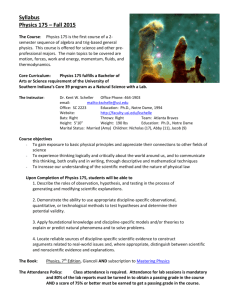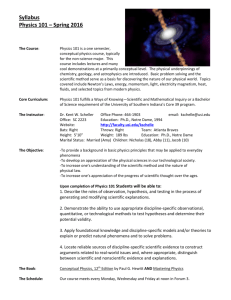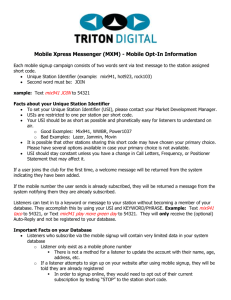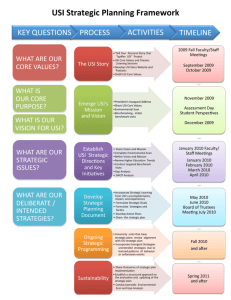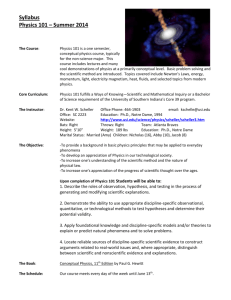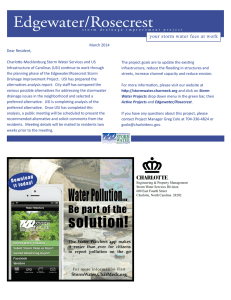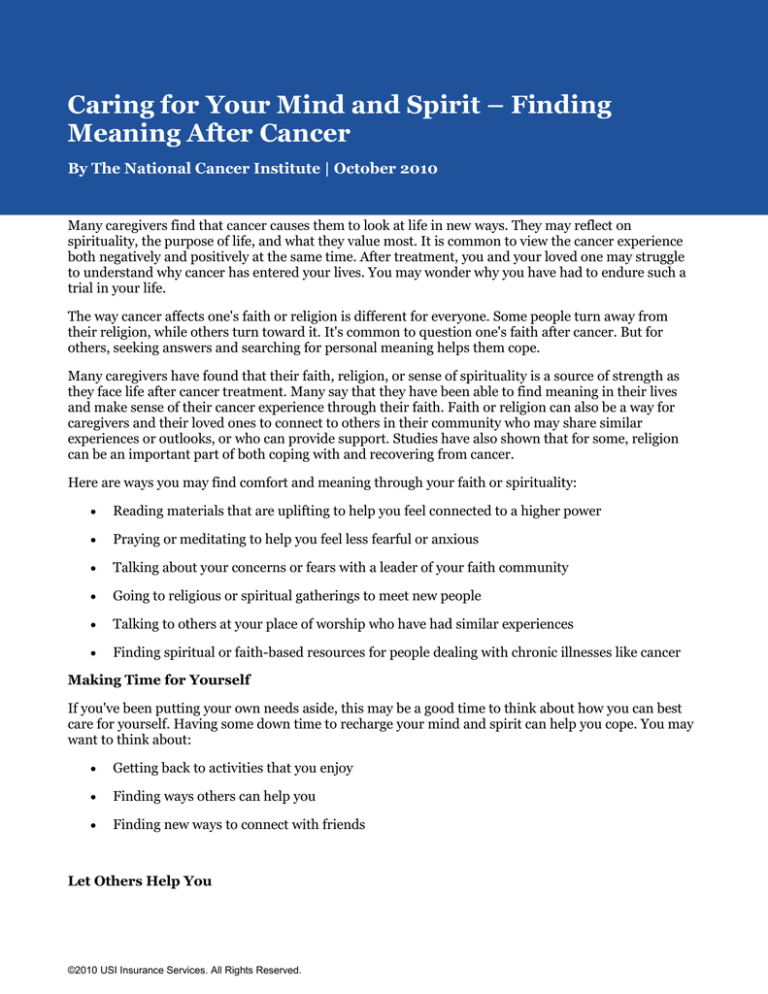
Caring for Your Mind and Spirit – Finding
Meaning After Cancer
By The National Cancer Institute | October 2010
Many caregivers find that cancer causes them to look at life in new ways. They may reflect on
spirituality, the purpose of life, and what they value most. It is common to view the cancer experience
both negatively and positively at the same time. After treatment, you and your loved one may struggle
to understand why cancer has entered your lives. You may wonder why you have had to endure such a
trial in your life.
The way cancer affects one's faith or religion is different for everyone. Some people turn away from
their religion, while others turn toward it. It's common to question one's faith after cancer. But for
others, seeking answers and searching for personal meaning helps them cope.
Many caregivers have found that their faith, religion, or sense of spirituality is a source of strength as
they face life after cancer treatment. Many say that they have been able to find meaning in their lives
and make sense of their cancer experience through their faith. Faith or religion can also be a way for
caregivers and their loved ones to connect to others in their community who may share similar
experiences or outlooks, or who can provide support. Studies have also shown that for some, religion
can be an important part of both coping with and recovering from cancer.
Here are ways you may find comfort and meaning through your faith or spirituality:
Reading materials that are uplifting to help you feel connected to a higher power
Praying or meditating to help you feel less fearful or anxious
Talking about your concerns or fears with a leader of your faith community
Going to religious or spiritual gatherings to meet new people
Talking to others at your place of worship who have had similar experiences
Finding spiritual or faith-based resources for people dealing with chronic illnesses like cancer
Making Time for Yourself
If you've been putting your own needs aside, this may be a good time to think about how you can best
care for yourself. Having some down time to recharge your mind and spirit can help you cope. You may
want to think about:
Getting back to activities that you enjoy
Finding ways others can help you
Finding new ways to connect with friends
Let Others Help You
©2010 USI Insurance Services. All Rights Reserved.
You may feel tempted to tell people that you and your loved one are doing fine and don't need help. It
may be that you don't want to trouble people any longer. Chances are that both of you are tired and are
still getting used to life after treatment. It may help to tell others that you're still adjusting and let them
know ways they can help. Try to keep a support system made up of people such as:
Family and friends
Members of your faith or spiritual community
Neighbors
Coworkers
Members of civic groups and associations
Think about what type of support would be helpful. Do you need help from someone to do tasks? Or do
you just need someone to be there to listen while you talk? The clearer you can be about your needs, the
easier it is for people to help you.
Small Things I Can Do for Me
Each day, try to take some time to do something for you, no matter how small it is. Some ideas include:
Napping
Exercising or doing yoga
Keeping up with a hobby
Taking a drive
Seeing a movie
Working in the yard
Going shopping
Catching up on phone calls, letters, or e-mail
You may find that it's hard to relax, even when you have time for it. Some caregivers find it helpful to do
exercises such as deep breathing or meditation.
Stay Open to New Sources of Support
Family, friends, neighbors, and coworkers who stayed away during treatment may now be willing or
able to provide you with support. You may find it helpful to talk with someone who didn't go through
the cancer experience with you. This could be a family member, friend, faith or spiritual leader,
counselor, or support group member.
©2010 USI Insurance Services. All Rights Reserved.
It's important to find ways to cope with your thoughts and feelings. Would talking with others help? If
so, it's important for you to connect with other people, especially if you want to say things that you can't
say to your loved one. Try to find someone you can really open up to about your feelings or fears.
However, be aware that others may not be there to help. They may feel awkward about helping or
assume that you're getting back to "normal" and don't need help any more. Or they may have personal
reasons, such as lack of time or things going on in their own lives.
Join a Support Group
"What I need at least once or twice a week is to talk to someone or a group of people who are in the
same shoes as I am." - Vince
Support groups can meet in person, by phone, or over the Internet. They can help you gain new insight
into what's happening, give you ideas about how to cope, and help you know that you're not alone.
In a support group, people may talk about their feelings and what they have gone through. They may
trade advice with each other and help others who are dealing with the same kinds of issues. Some
people like to go and just listen.
If you feel like you would enjoy outside support such as this, but can't get to a group in your area, try a
support group on the Internet. Some caregivers say Web sites with support groups have helped them a
lot.
Find Respite Help
You may have used or looked into respite ("res-pit") care already. Even though your loved one has
completed cancer treatment, there may still be many caregiving tasks. Respite helpers spend time with
your loved one so you can rest, see friends, run errands, or do whatever you'd like to do. They can be
paid or volunteer. Respite services can also help with the physical demands of caregiving, like lifting
your loved one into a bed or a chair. If this service would be useful for you to start or keep, you may
want to:
Talk with the patient about having someone come into your home to help out from time to time.
If you already have respite care helpers, talk about keeping them for a while.
Ask the respite helpers what types of tasks they can do, now that treatment has ended.
Get referrals from friends or health care professionals. Your local agency on aging should also
have suggestions.
Respite help can come from many sources:
Family, friends, or neighbors
Coworkers
Members of your faith community
Government agencies
Nonprofit groups
Talk to a Counselor
You may be feeling overwhelmed and feel like talking to someone outside your inner circle of support.
Some caregivers find it helpful to talk to a counselor, psychologist or other mental health professional.
Others also find it helpful to turn to a leader in their faith or spiritual community. All may be able to
help you talk about things that you don't feel that you can talk about with your loved one or others
around you. You also might find ways of expressing your feelings and learn ways of coping that you
hadn't thought of before.
Give Back to Others in Need
After treatment ends, many caregivers feel the need to give back to others who are facing cancer. They
turn their energy to helping people in their community, joining support groups, or volunteering with
cancer organizations. For many, making a difference in the lives of others also helps them to help
themselves.
Write in a Journal
Many caregivers find that writing in a journal helps them decrease negative
thoughts and feelings. Expressing things on paper may help you process what
you're going through. You can write about any topic, such as your most stressful
experiences or something that is bothering you. You can also write about the
things that lift you up and bring you joy, such as a kind neighbor, a stress-free
day, or time spent with others.
Look for the Positive
Caregivers say that looking for the good things in life helps them feel better. They also try to focus on
the things they can control, rather than the things they can't. Each day, try to think about something
that you found rewarding about caregiving. Or take a moment to feel good about anything positive
about the day - a nice sunset, a hug, a good meal, or something funny you heard or read.
Let Yourself Laugh
It's okay to laugh. In fact, it's healthy. Laughter releases tension and makes you feel better. You can read
humor columns, watch comedy shows, talk with amusing friends, or remember funny things that have
happened to you. Keeping your sense of humor in trying situations is a good coping skill.
Worrying About Your Risk of Cancer
"Before my mom was diagnosed with breast cancer, I didn't think much about my own health. But
now I'm worried because my grandmother had breast cancer, too. It's not only me, but also my 10year-old daughter I'm worried about. Shouldn't we both get checked?" – Jeanne
A blood relative's cancer diagnosis may make you more concerned about whether you will get cancer,
too. Most cancer is not passed down through families. Only about 5 to 10 percent of the most common
cancers - breast, colon, and prostate cancer - are inherited. This is an important topic to discuss with
your doctor.
Your doctor will want to know what types of cancer have been in your family and which family members
had it. The more relatives you have had with certain types of cancer, the higher your risk. Talk to your
doctor about prevention and screening.
If you have a strong family history of cancer, you may want to talk to your doctor about whether genetic
testing is right for you. Some people like to know this, so they can get tests or cancer screenings more
often.
©2010 USI Insurance Services. All Rights Reserved.
Source: http://www.cancer.gov/cancertopics/coping/someone-you-love-completed-cancertreatment/page5
Disclaimer Statement:
These materials are produced by USI Insurance Services for educational purposes only. Certain information contained in these materials is considered
proprietary information created by USI and/or their licensed and appointed insurance carriers. Such information shall not be used in any way, directly or
indirectly, detrimental to USI and/or their affiliates.
Neither USI nor any of its respective representatives or advisors has made or makes any representation or warranty, expressed or implied, as to the
accuracy or completeness of these materials. Neither USI nor their respective representatives or advisors shall have any liability resulting from the use
of these Materials or any errors or omission therein. These materials provide general information for the use of our clients, potential clients, or that of
our clients’ legal and tax advisors.
IRS Circular 230 Disclosure: USI Insurance Services and its affiliates do not provide tax advice. Accordingly, any discussion of U.S. tax matters
contained herein (including any attachments) is not intended or written to be used, and cannot be used, in connection with the promotion, marketing or
recommendation by anyone unaffiliated with USI Insurance Services of any of the matters addressed herein or for the purpose of avoiding U.S. taxrelated penalties. Also, the information contained in this document should not be construed as medical or legal advice.
Please contact us if you have any questions regarding the content of this document.
601 Union St
Suite 1000
Seattle, WA 98101
206.441.6300
kpcom.com
700 NE Multnomah
Suite 1300
Portland, OR 97232
503.224.8390
usinw.usi.biz
© Kibble & Prentice Holding Company, 2010. All Rights Reserved.
1255 Treat Boulevard
Suite 300
Walnut Creek, CA 94597
925.472.6770
usi.biz
2021 W March Lane
3rd Floor
Stockton, CA 95207
209.957.6800
usi.biz


